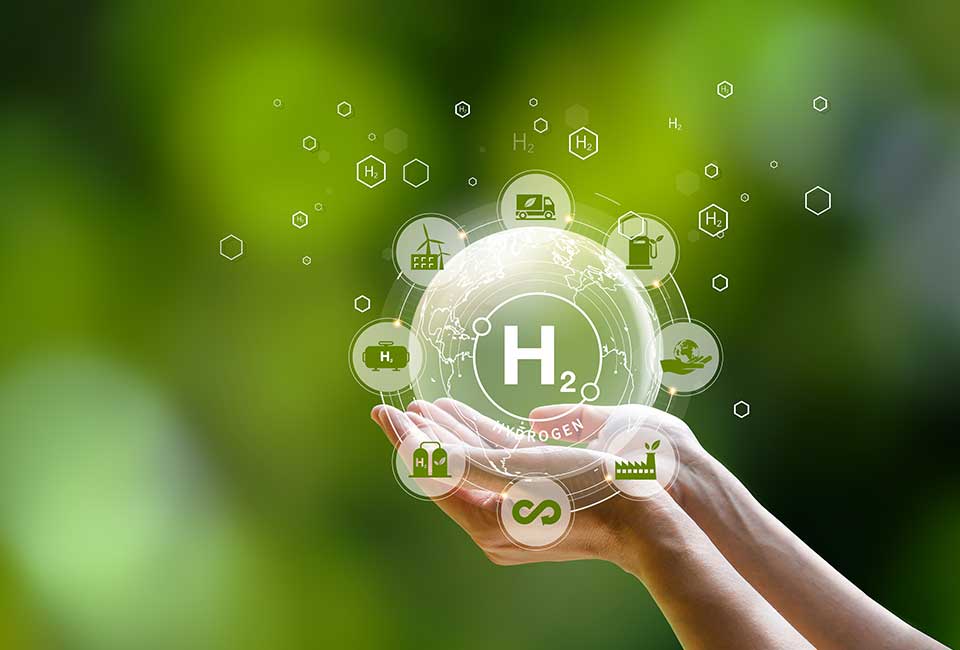
Today, hydrogen is mainly used as a raw material in industrial and chemical processes. In the future, it should make an important contribution to reducing greenhouse gas emissions to net zero by 2050.
The Federal Council has adopted the postulate report «Hydrogen. An overview and options for action for Switzerland». The report shows what role hydrogen can play in Switzerland's future energy system. It also examines the questions of origin, transportation and framework conditions for the market ramp-up. The report thus provides the basis for a national hydrogen strategy, which the Federal Council will present in 2024.
Hydrogen will gain importance in the energy system
Hydrogen can make an important contribution to reducing greenhouse gas emissions to net zero by 2050. Hydrogen will therefore become increasingly important in the energy system over the next few years. It will be used in particular where there are no other renewable alternatives, for example for the generation of high-temperature process heat, in land, air and sea transport or as seasonal energy storage for electricity production. However, the reconversion of hydrogen into electricity is inefficient. Investigations are currently underway into the future demand for hydrogen in Switzerland.
Hydrogen demand is initially covered by domestic production
Until a European hydrogen network is established and production is ramped up worldwide, the demand for hydrogen in Switzerland will have to be covered by domestic production. Hydrogen can be produced at existing power plants or by industrial companies that use the hydrogen directly on site or transport it onwards. Large gas storage facilities, which do not yet exist in Switzerland, are required for storage, or the hydrogen can be converted into liquid synthetic energy sources. In the long term, however, imports from the EU and third countries will become cheaper than domestic production, meaning that the proportion of hydrogen imports is likely to increase continuously.
Hydrogen is transported in converted or newly built gas pipelines and by road. From 2035, the transportation and distribution infrastructure in Europe is expected to be developed to such an extent that imports to Switzerland will be possible.
The economy, federal government, cantons, cities and municipalities must work together
The hydrogen market ramp-up in Switzerland requires close cooperation between industry, the federal government, cantons, cities and municipalities. The Federal Act on a Secure Electricity Supply from Renewable Energies, the Climate Protection and Innovation Act, the revision of the CO2 Act and the acceleration bill for the production of renewable energies already provide various incentives for the development of a domestic market.
Further framework conditions are being examined
The Federal Council is expected to present the national hydrogen strategy in the second half of 2024. In addition, further framework conditions will be examined to support the development of a hydrogen market in Switzerland, such as securing Switzerland's connection to the future European hydrogen network.